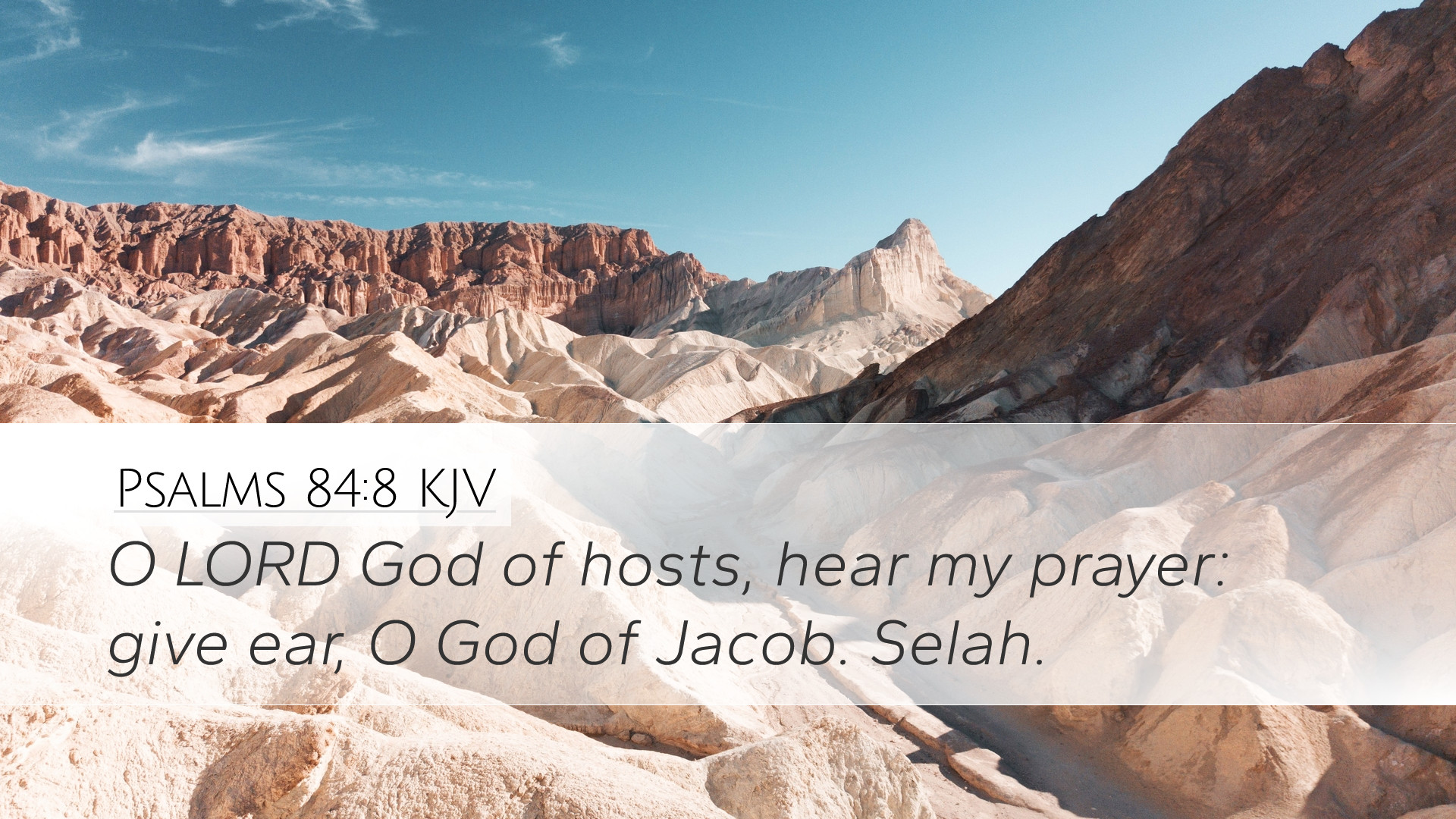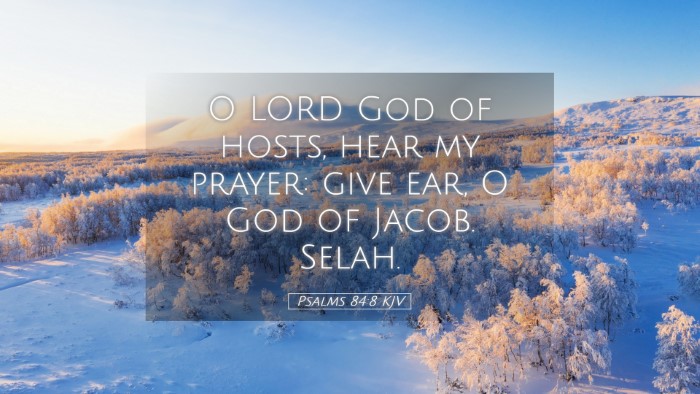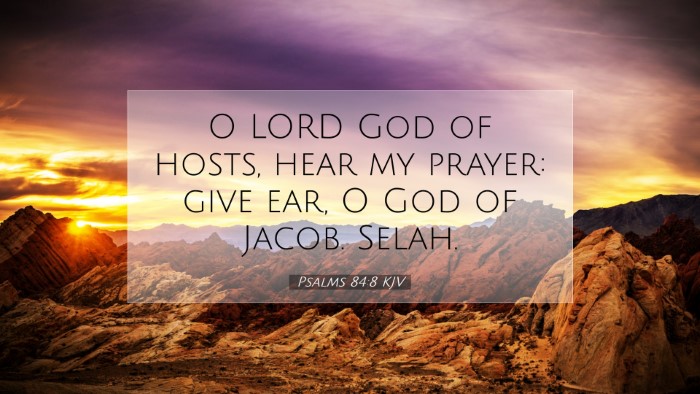Psalms 84:8 Commentary
Verse Text: "O Lord God of hosts, hear my prayer: give ear, O God of Jacob."
This verse forms part of a psalm that expresses a deep longing for God’s presence and the beauty of His abode. The psalmist passionately calls upon God, beseeching Him for attention and assistance.
1. Contextual Background
The Psalms, often viewed as the hymnbook of Israel, encapsulate a wide range of human emotions and experiences in relation to God. Psalms 84 is attributed to the sons of Korah, who showed a profound appreciation for the temple and the worship of God. This psalm emphasizes the blessedness of dwelling in God's presence, making the plea in verse 8 significant as it reflects a personal and communal relationship with God.
2. Breakdown of the Verse
- Address to God: "O Lord God of hosts" – This title signifies God’s sovereignty and omnipotent control over heaven and earth. The psalmist acknowledges God as the commander of the heavenly armies, reinforcing His power and authority.
- Plea for Attention: "hear my prayer: give ear" – The repetition of the request demonstrates urgency and desperation. It showcases the psalmist’s deep desire for divine response, highlighting the relational aspect of prayer.
- Identity of God: "O God of Jacob" – By invoking the name of Jacob, the psalmist connects his prayer to the historical covenantal relationship between God and Israel. This title evokes memory and trust in God’s past faithfulness, serving as a reminder of God’s promises and protection.
3. Theological Insights
Theologically, Psalms 84:8 emphasizes the importance of prayer in the life of a believer. Matthew Henry asserts that prayer is a primary avenue through which believers communicate with God and seek His assistance. This verse encapsulates the essence of intercession and personal supplication, encouraging believers to approach God with sincerity and reverence.
Furthermore, the acknowledgment of God as “the God of Jacob” signifies that God's faithfulness extends beyond the individual, encompassing the corporate identity of His people. As Albert Barnes remarks, invoking the name of Jacob indicates a plea based on the heritage of God’s mercies and the assurance of His never-failing support to the descendants of Jacob.
4. Exposition from Commentators
According to Adam Clarke, this verse illustrates a deep yearning for God, portraying prayer not merely as a ritual but as an intimate, desperate cry for divine engagement. Clarke emphasizes that the psalmist’s cry reflects a universal human need for help in times of distress. It serves as a model for effective prayer that is earnest and heartfelt.
Matthew Henry expands on the concept of God as our protector, encouraging believers to seek His guidance and support actively. He points out that our prayers should reflect our dependence upon God, much like the psalmist’s appeal for God to "hear" and "give ear" to his supplications.
5. Practical Application for Believers
Psalms 84:8 can serve as a source of both comfort and challenge for believers today. Practically, it encourages individuals to cultivate a personal relationship with God through persistent prayer. The psalmist’s call to God provides a framework for extracting hope from the promise of divine attention, particularly during life’s tribulations.
Furthermore, this verse encourages believers to remember their covenantal heritage. For modern-day Christians, reflecting on God’s past faithfulness in the biblical narrative can bolster faith and confidence in His enduring promise to respond to prayer. This not only strengthens individual faith but can also unify the church community as they corporately seek God’s guidance and support.
6. Conclusion
In summary, Psalms 84:8 encapsulates profound theological themes regarding prayer, divine sovereignty, and the faithfulness of God. As we study this verse, it is crucial for us to embrace its call to attentive prayer and to recognize God’s unchanging nature expressed through His relationship with His people. This verse illuminates the path of sincere prayer and beckons believers to experience the richness of God’s presence as they engage with Him sincerely and persistently.


